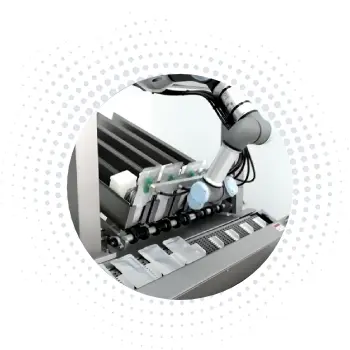
A strong seal is not necessarily an airtight one, and the flow of gas or liquid through the seal (leak) is just one type of seal defect. As such, there is a fundamental challenge to any leak testing method, whether it is a fish tank-bubble, vacuum deferential, or helium test: none of these methods detect non-leaking seal defects. PTI’s proprietary Airborne Ultrasound technology is a non-destructive and non-invasive seal quality inspection method that can be used for many material types such as Tyvek, paper, foil, film, aluminum, plastic & poly. Various types of defects, visible and invisible, leaking and non-leaking, process-related and random, are detectable. Airborne ultrasound is an ASTM Test Method F3004 and an FDA recognized standard for seal quality testing.
Know more